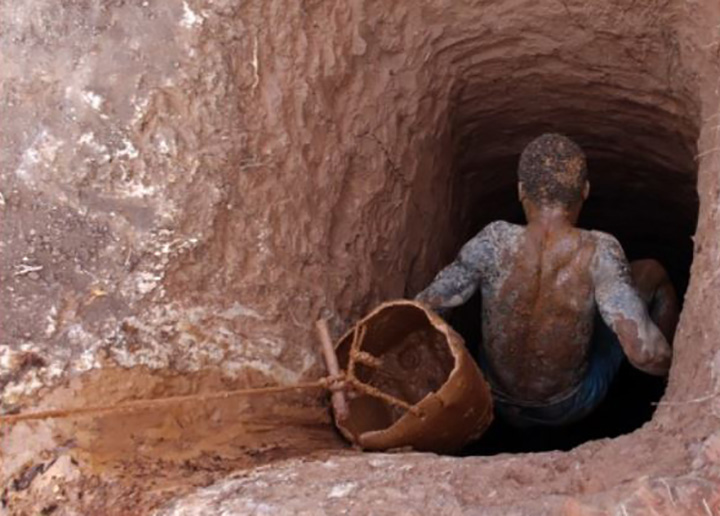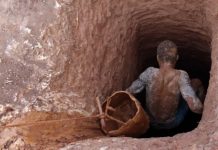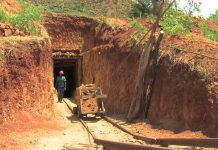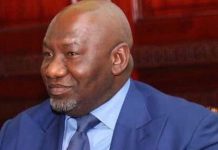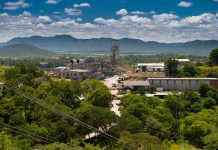The Chimanimani Tourist Association says up to 2,000 people entered the national park illegally in August to pan for gold. Brian Gratwicke/flickr
News that this park, located along a stunning quartzite mountain range between Zimbabwe and neighbouring Mozambique, is threatened by mining activities comes after consternation at reports earlier this week that Chinese coal companies had been given a permit to prospect in Hwange National Park in the northwest of the country – home to Cecil the Lion.
The panners in Chimanimani have cut down trees, strewn litter, polluted a major river and daubed ancient rock art with graffiti, eyewitnesses say.
The Bundi River, normally a crystal-clear stream that supplies areas below the mountains with drinking water, was “running the colour of coffee without milk in it” last month due to the activities of gold panners, Shoesmith said.
Jane High, who chairs the independent Chimanimani Tourist Association, said reports gathered by her office suggest up to 2,000 people entered the park illegally last month. The authorities acted swiftly when she reported the invasion to the environment ministry in Harare, she says.
Unique plants and animals
“There are a lot of Chimanimani residents who are so angry that part of that 2,000 people that arrived to go and rape and pillage their park were from far away. So they said, ‘you know what, these guys don’t even live here yet they are going there and they are getting the gold’.”
The Bundi River – and its surrounding plain – is home to rich wildlife, including the critically-endangered Cave squeaker, a frog only rediscovered in late 2016 after it had been missing to science for 50 years.
The mountains are also home to Zimbabwe’s newest species of tree, the Chimanimani miraculous-berry.
The illegal mining is the latest threat to tourism in Chimanimani, already hard-hit by the country’s long-running economic crisis (inflation is now at over 800 percent), the devastation wrought last year by Cyclone Idai and now the Covid-19 lockdown.
Tinashe Farawo, spokesman for the Zimbabwe National Parks and Wildlife Management Authority, said most illegal mining is taking place outside the park.
“We are making sure we stop the illegalities that are happening there,” he said.
Parks at risk
Though there’s no evidence the panners in Chimanimani have government backing, critics worry that as coronavirus takes its toll on tourism, the authorities may be tempted to turn protected areas elsewhere over to miners.
President Emmerson Mnangagwa’s government is keen to treble mining revenue to 12 billion US dollars by 2023.
This week it emerged that two Chinese coal-mining firms had been granted concessions inside Hwange National Park, in areas that are home to endangered black rhinos and painted dogs, as well as thousands of elephants.
Environmental lawyers say inconsistencies in Zimbabwe’s mining and environmental laws are putting its parks at risk.
“What we have is a perception that mining takes precedence over anything else,” said Nyaradzo Mutonhori, programmes manager with the Harare-based Zimbabwe Environmental Law Association.
“We are definitely afraid that there is really going to be an upscaling of mining in national parks and this is going to increase environmental degradation.”

